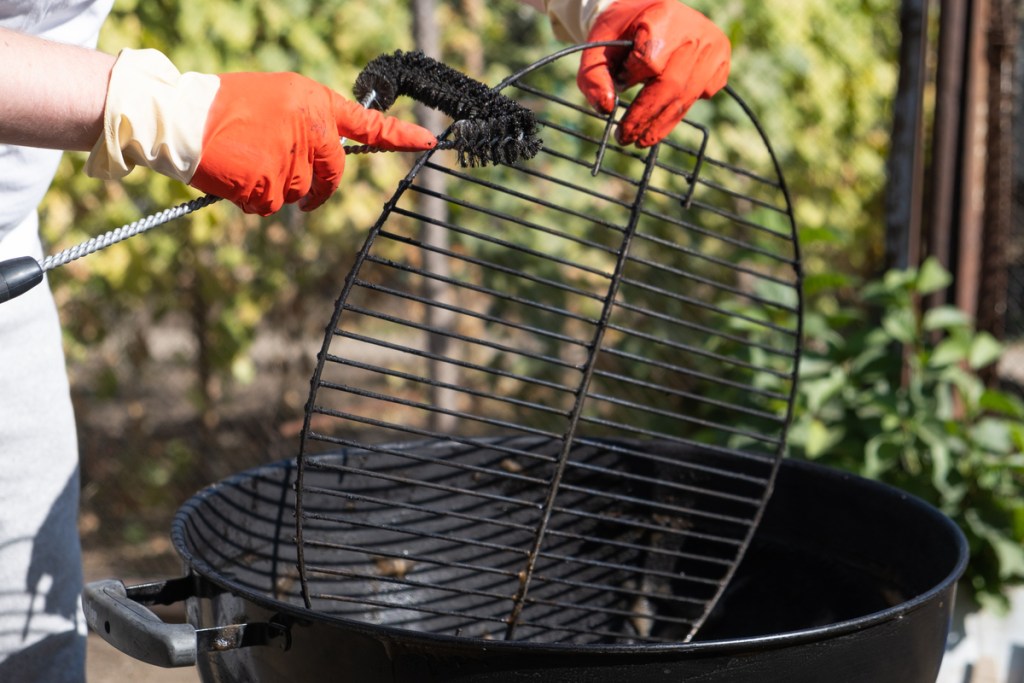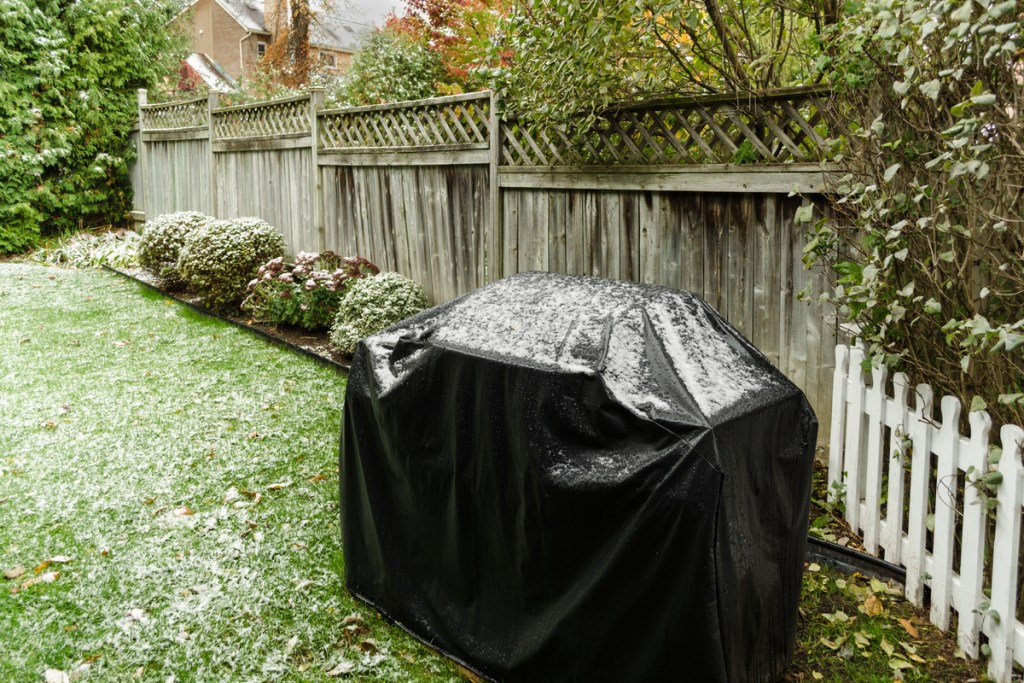For some extreme barbecuers, grilling season never ends. There are always people willing to stand outside in a parka jacket and dodge snowdrifts just to whip up a perfectly grilled steak. For the rest of us who switch to countertop grills during the winter months, the end of the fall means it’s time to put those outdoor grills into storage until next year.
Cleaning and winterizing your grill ensures that it’s going to be fully functional and ready to go when grilling season rolls around once again. After you’ve grilled your last bratwurst, check out this guide to learn how to clean and store your grill the right way.

How to clean your grill
Sadly it isn’t as simple as just turning off your grill, shutting the lid, and walking away. To prevent the grill from rusting or accumulating too much food debris and grease, it’s important to clean and prepare your grill for seasons of unuse. These easy-to-follow steps will work with any type of grill — gas, propane, or charcoal.
Fire cleansing
After your final cookout of the season, preheat your grill one last time to heat up the grids.
Once warm, grab your grill brush and scrub the grids to loosen as much dried-on food and debris as possible. Clearing away all traces of leftover food and BBQ sauces can prevent curious critters from getting inside as they’re looking for a snack. If you live in an area with temperatures that don’t drop below freezing during the winter, mold can also take hold of any leftover food on the grill.
If you don’t have a grill brush, it’s crucial to invest in one, not just for the pre-winter cleaning process, but for everyday maintenance as well. If you clean the grids after every use, the burnt-on, sticky food won’t get a chance to really build up. This makes the end-of-season cleaning much easier and more efficient. We recommend this highly-rated, bristle-free option that you can get on Amazon for less than $20.
Time to scrub
Fire and heat will take care of some of the burnt-on food debris, but not all of it. Let the grill cool down, then remove the grids, tamers, and burners. Use a 3M pad, dish soap, and water to scrub the remaining residue from the entire interior of the grill.
Be sure to rinse thoroughly so you don’t leave any soapy residue behind. Empty out your drip pans and ash catchers, then scrub and rinse them as well before replacing them in their original spots.
Appearances matter
Don’t neglect the outside of your grill when you are completing your winterizing regimen. Though it doesn’t come into contact with food, it’s an important step in keeping your grill looking clean and sanitary. Use a damp, soapy cloth to wipe down the outside of the grill, removing any sticky sauces, drippings, and splatters. Avoid using abrasive cleaners on the outside of your grill as they can corrode the metal or stainless steel coating.

Cover, protect, and store
To protect your valuable grill from the punishing effects of harsh winter weather, invest in a high-quality weatherproof cover. Grill covers can keep it safe from the corroding wintry elements and greatly extend the life of your grill. Be sure your grill is completely dry before covering it up, as lingering moisture can lead to rust. Quickly inspect the cover once it’s in place, checking for any rips or holes. Bugs, rodents, and moisture can get into even the tiniest tears, so if you can’t patch it properly, it may be time to buy a new grill cover.
If possible, store your grill in the garage or shed for the winter season. If you don’t have an appropriate enclosed space, try to find a place in your yard that has an overhang to minimize snow or rain exposure, or at least a spot where it will be somewhat protected from gusts of high winds.
Note: never store propane tanks inside, not even in a garage.
Winterizing your grill will take a little time and effort, but it will be well worth it when spring rolls around and you can wheel it out to start grilling without having to first scrape off food, grease, and dried sauces that have been sitting on the grids for months. Make grill winterizing a part of your annual fall clean-up schedule and you’ll be the grill master of your backyard cookouts for years to come.



